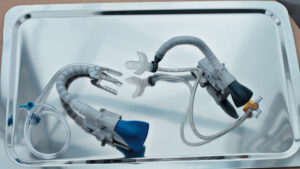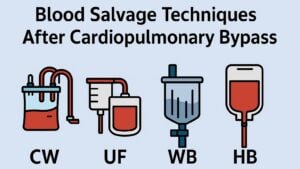
Patient Outcomes After Introduction of Novel Myocardial Protection Protocol for Prolonged Aortic Cross-Clamping
This study evaluates the impact of a revised myocardial protection protocol implemented in 2021 at St. Marianna University School of Medicine for patients undergoing cardiac surgery with prolonged aortic cross-clamping (>4 hours). The revised protocol, focusing on the timing and method of blood cardioplegia administration, led to significantly lower postoperative creatine kinase levels and shorter hospital stays, indicating improved myocardial protection without altering the cardioplegia solution itself.










